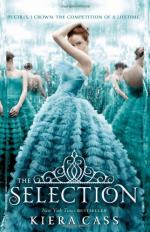|
This section contains 1,243 words (approx. 5 pages at 300 words per page) |

|
Selection is a process in which members of a population reproduce at different rates, due to either natural or human-influenced factors. The result of selection is that some characteristic is found in increasing numbers of organisms within the population as time goes on.
Types of Selection
Artificial selection, which is even older than agriculture, refers to a conscious effort to use for future breeding those varieties of a plant or animal that are most useful, attractive, or interesting to the breeder. Artificial selection is responsible for creating the enormous number of breeds of domestic dogs, for instance, as well as high-yielding varieties of corn and other agricultural crops.
Selection also occurs in nature, but it is not conscious. Charles Darwin called this natural selection. Darwin saw that organisms constantly vary in a population from generation to generation. He proposed that some variations allow an organism to be better...
|
This section contains 1,243 words (approx. 5 pages at 300 words per page) |

|


